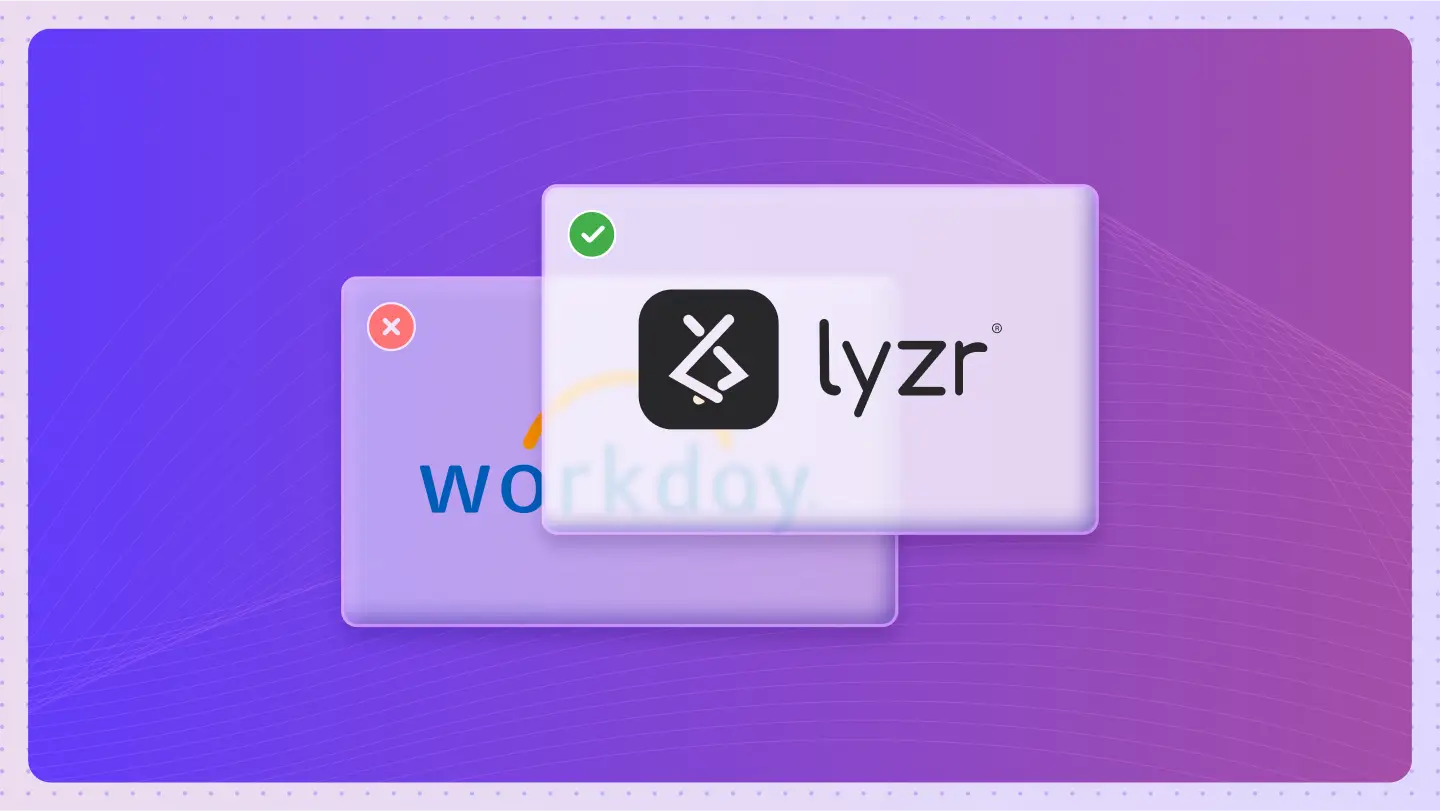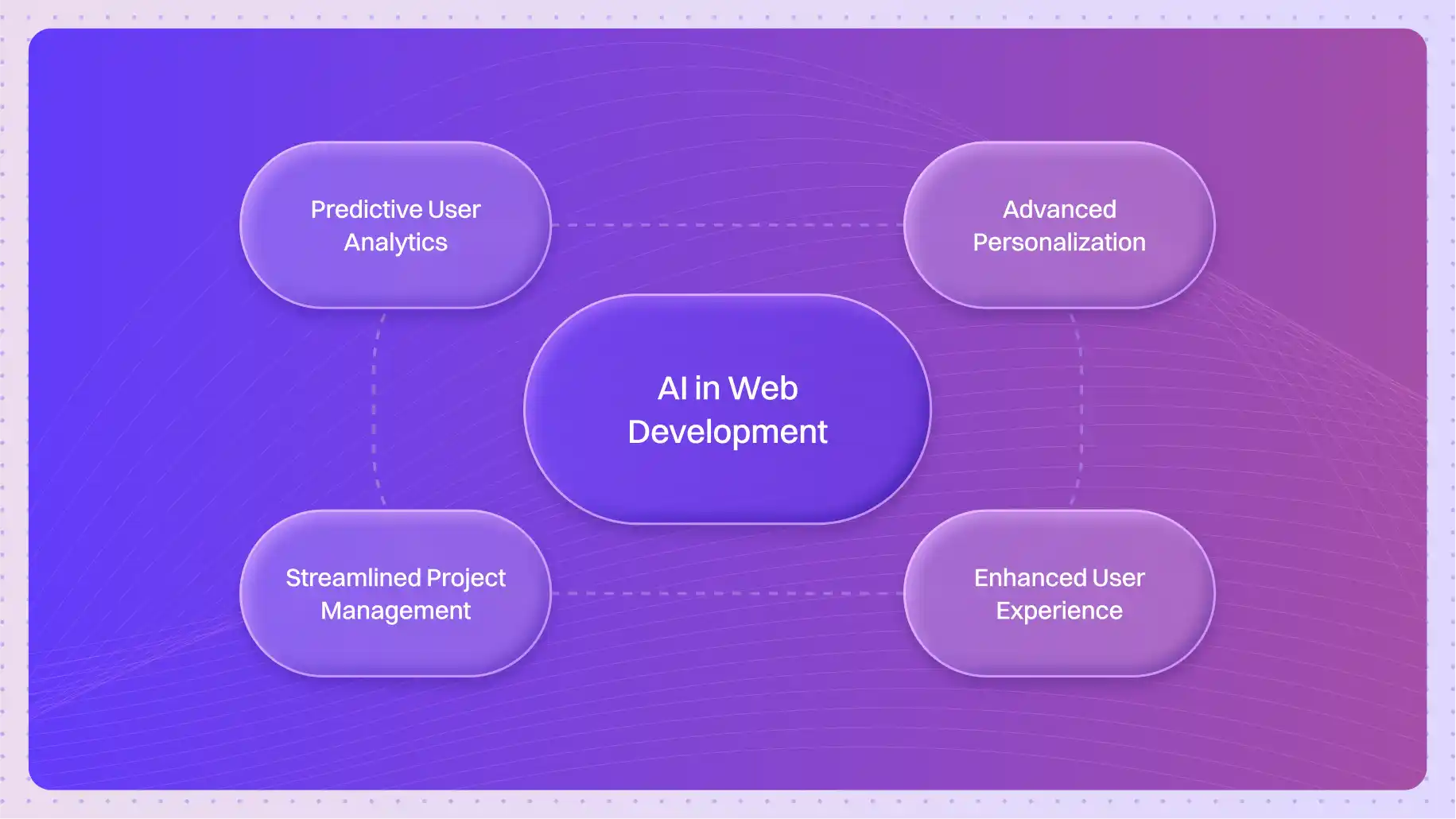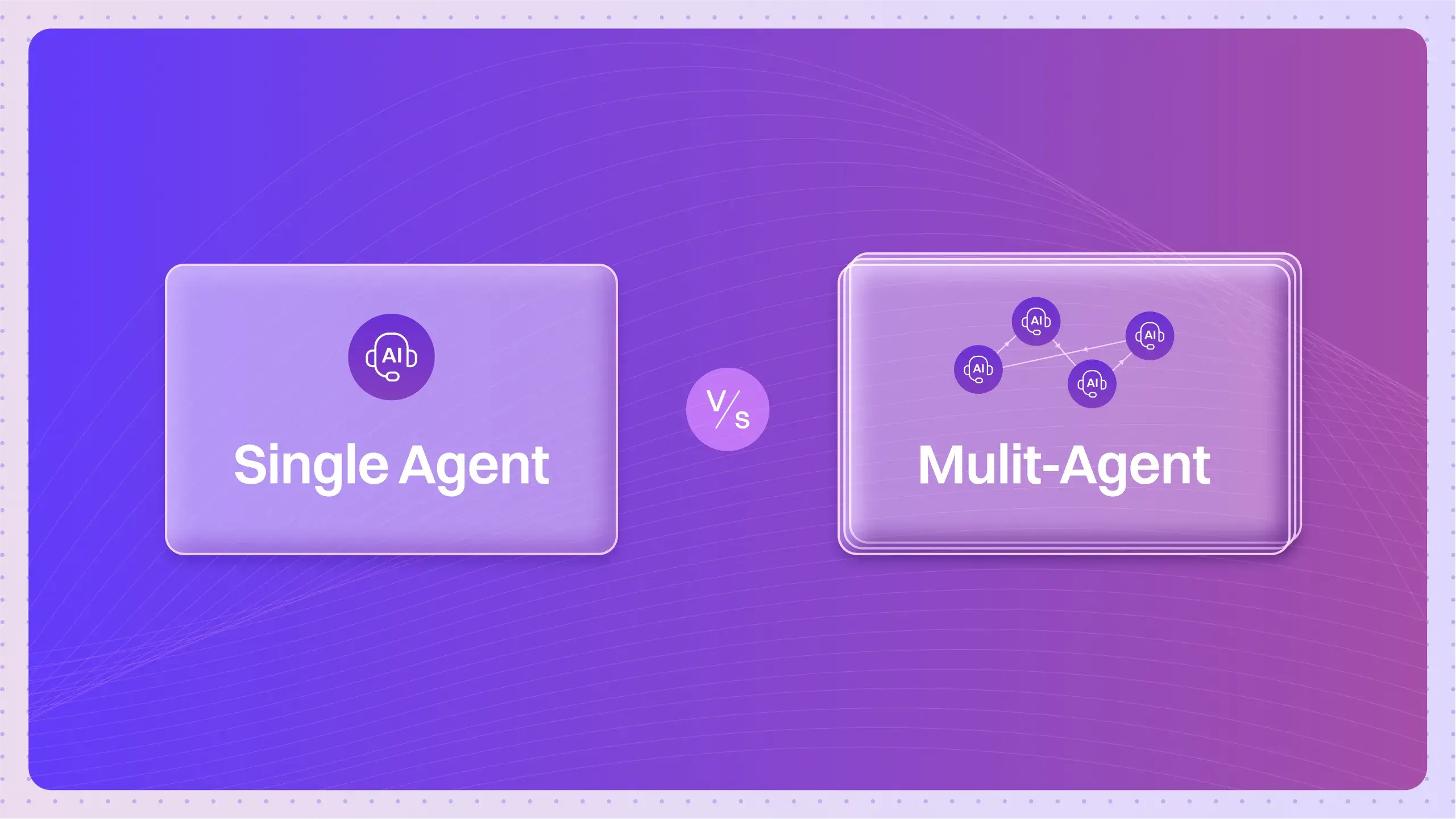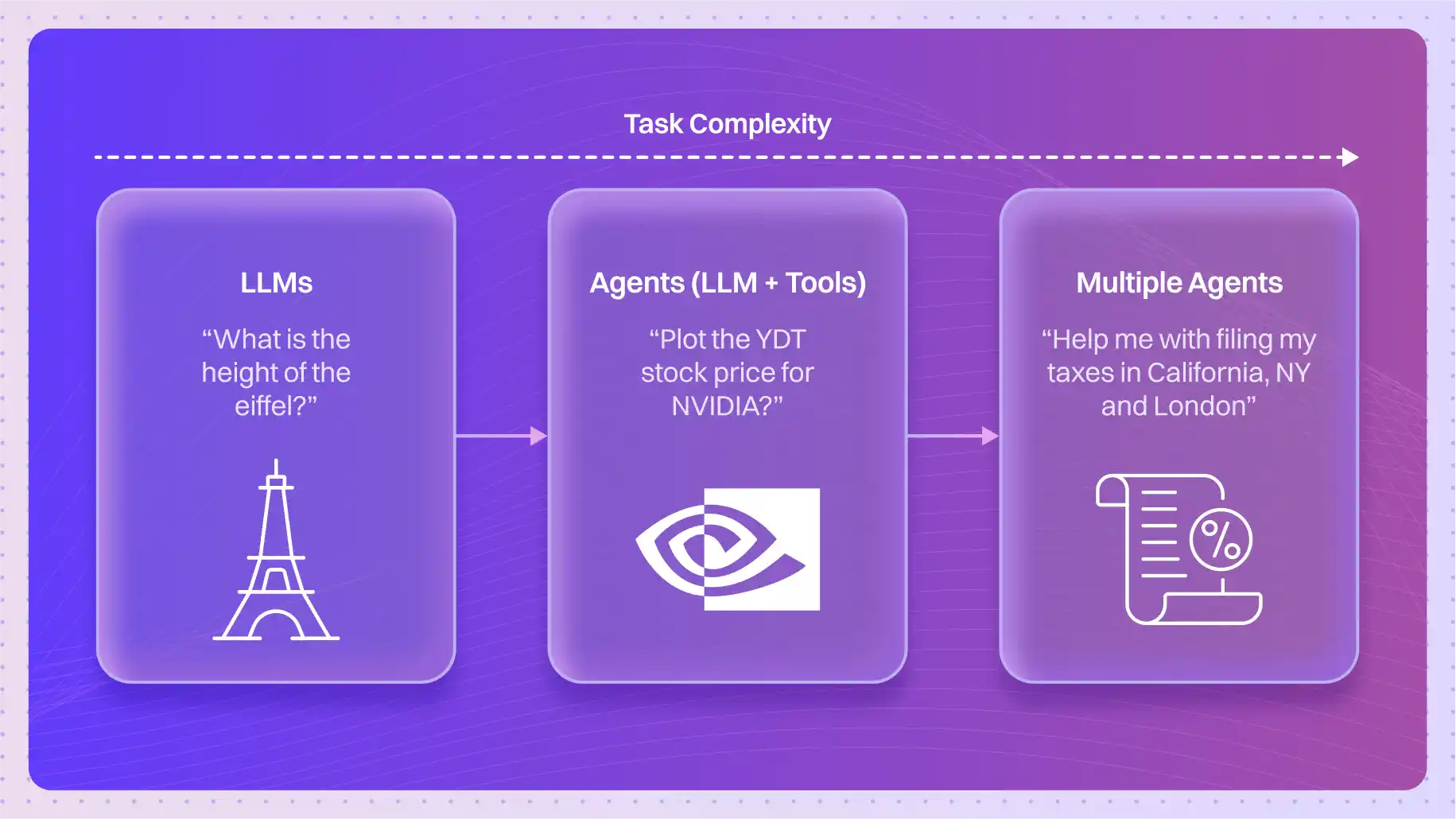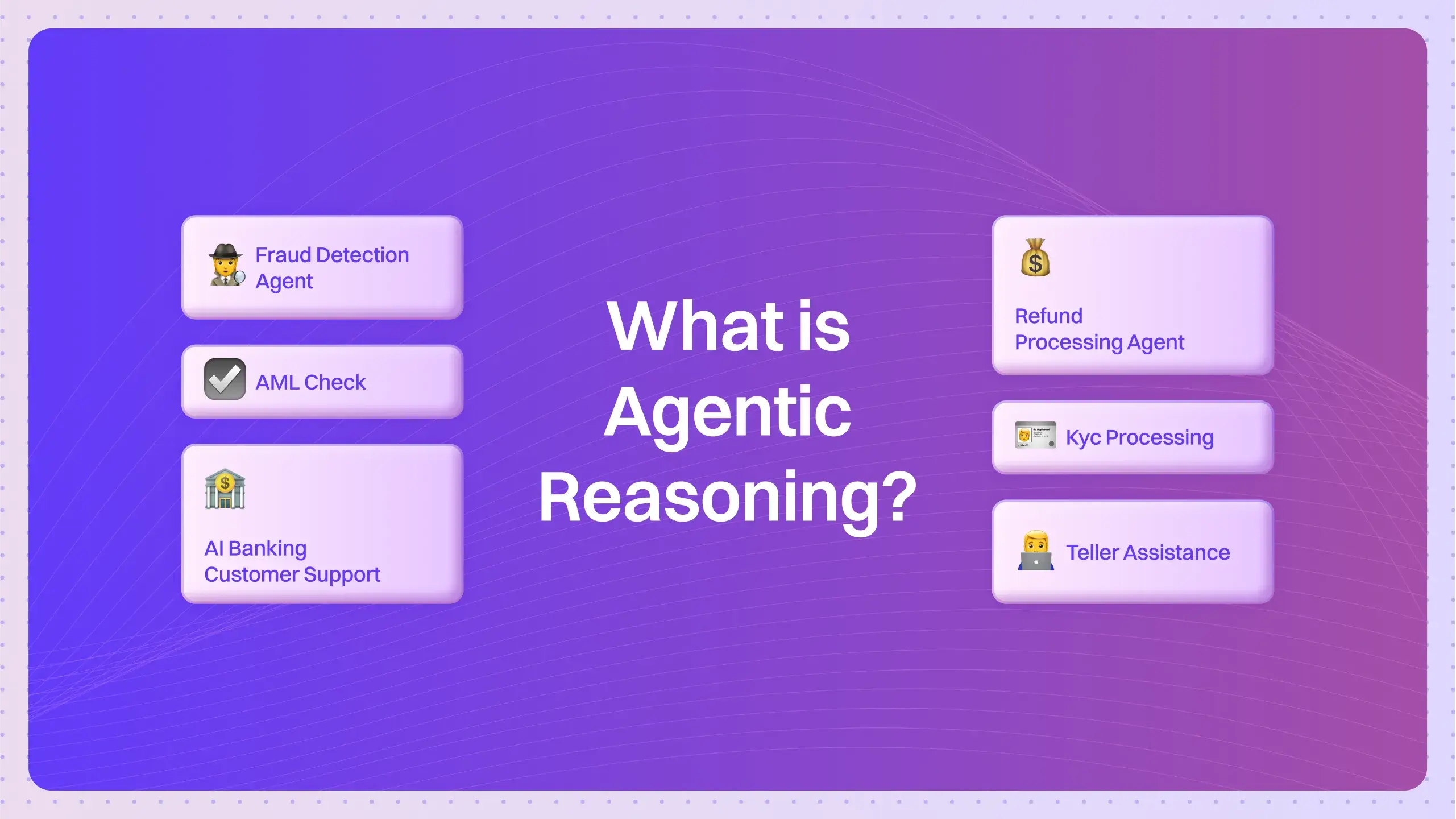Table of Contents
ToggleIn web development, the pressure is always on. You need to be fast, accurate, and ready to adapt at a moment’s notice. From crafting the perfect frontend to managing complex backend integrations, every project is filled with repetitive tasks and critical decisions.
But a major shift is happening. A new kind of tool is entering the workflow: the AI agent. These are not just passive assistants; they are active contributors ready to code, debug, and build alongside you.
The role of a developer is fundamentally changing. For years, your value was tied to how well you could instruct a machine through code. Now, your value comes from how well you can direct intelligent systems to achieve a goal. This is not just about adding a new tool to your belt; it is about shifting your position from a builder to an architect. You are no longer just laying bricks. You are directing the entire construction crew.
This change raises an important question: what exactly are these AI agents for web development, and how are they changing the game? Let’s dive in.
What Are AI Agents and Why Are They Needed Now?
An AI agent is a smart program built to perform tasks and reach a specific goal. In web development, an agent can plan, write, and review your code. It can even deploy that code with very little input from a person.
These are not simple chatbots or code generators. This is the essence of Agentic AI where AI agents can handle entire tasks from start to finish. They make smart choices based on the project’s context and can adapt as things change.
The need for agents stems from a simple truth: the complexity of modern applications has outpaced human working memory. You can no longer hold the entire system in your head. The web of dependencies, APIs, and microservices creates cognitive friction that slows down even the most talented teams. AI agents serve as an extension of your own mind, managing overwhelming detail so you can focus on the structure and purpose of what you are building.
So, why are these agents becoming so important right now? The current State of AI Agents shows that as modern web development grows more complex, the need for them has become critical. Teams have to juggle multiple frameworks, APIs, and user feedback. AI agents help manage this heavy load.
Here’s a quick visual explainer of what an AI Agent is.
What Can AI Agents Do?
The power of an agent is not in its individual skills, but in how it connects them. There are countless AI Agent Use Cases, but they all share this common thread. It creates a complete and interconnected feedback loop.
An agent generates code, tests it for errors, reviews it against standards, and then deploys it. This self-correcting system produces a coherence that is difficult to achieve with manual processes alone. AI agents are already making a big impact in several key areas. They can:
- Generate Code. Agents can instantly write boilerplate code or even entire functions from a simple prompt. This frees up your developers to focus on creative, high-level problems.
- Find and Fix Bugs. AI tools can analyze your code in real-time to spot errors and security risks. They can suggest fixes, which drastically cuts down on debugging time.
- Review Code. An agent can automatically check code to ensure it meets best practices and company standards. This leads to a cleaner and more efficient codebase.
- Automate Testing. AI can generate and run test cases across different browsers and devices. This improves your test coverage and reduces manual work for your QA team.
- Help with Design. Agents can help turn ideas into wireframes, mockups, full designs, or do my powerpoint for me. This speeds up the design process and helps designers and developers collaborate. They can also assist in brochure printing, speeding up the design-to-production process and helping designers and developers collaborate efficiently.
The 5 Main Benefits of Using AI Agents
These five outcomes all point to a single, more profound benefit: the reduction of cognitive load. Every repetitive task, every minor bug fix, and every routine check drains a small amount of your mental energy. While each instance is minor, the cumulative effect is a bottleneck on creativity and high-level problem-solving. AI agents absorb this cognitive overhead, preserving your focus for the architectural decisions that create real value.
1. You Get More Done AI agents are great at handling slow, repetitive tasks. This gives your developers more time to innovate and solve complex problems.
2. The Code Quality is Higher With AI tools checking code as you write, your team gets real-time feedback. This helps everyone maintain high standards and produce better, more reliable work.
3. You Can Build and Launch Faster AI speeds up many steps, from creating the first prototype to the final deployment. This is a huge advantage for teams that need to move quickly.
4. It Costs Less Money By automating common tasks, AI agents reduce the time and resources needed for development. This can significantly lower your overall project costs.
5. Teamwork Gets Better Gets Better Many AI tools connect directly with platforms like GitHub. This direct GitHub Integration means they can offer real-time code suggestions and feedback, helping your team collaborate more smoothly.
Top AI Agents for Web Developers
If you want to improve your workflow, several powerful AI agents can help. Each is built on a different AI Agent Framework and has different strengths, from writing code faster to building custom solutions from scratch.
Choosing the right agent is less about finding the “best” tool and more about identifying your primary bottleneck. Are you slowed down by writing boilerplate code? Or is debugging the main source of delay? Each tool is designed to solve a specific type of friction. You should select the one that most directly addresses the biggest obstacle standing between your team and its goals. Working with pro website developers can complement this approach by ensuring your digital projects are executed efficiently, with expert guidance on both design and functionality to eliminate technical bottlenecks.
Here is a quick comparison of the top tools available today (and if you’re exploring frameworks, you might want to compare options like Agent Studio vs. CrewAI):
| Agent Name | Primary Use Case | Key Feature |
| Lyzr AI | No-Code Agent Building | Lets you build and launch Custom AI Agents safely and quickly. |
| GitHub Copilot | AI Code Completion | Acts like an AI pair programmer, suggesting entire lines of code. |
| Tabnine | Predictive Code Completion | Focuses on privacy and has the ability to work offline for security. |
| DeepCode (Snyk) | Code Analysis & Security | Finds bugs and security risks in your code in real-time. |
| OpenAI Codex | Natural Language to Code | The core technology that powers many conversational coding tools. |
| AWS CodeWhisperer | AWS-Specific Coding | Provides code recommendations tailored for building AWS apps. |
How AI Is Changing the Way We Build Websites
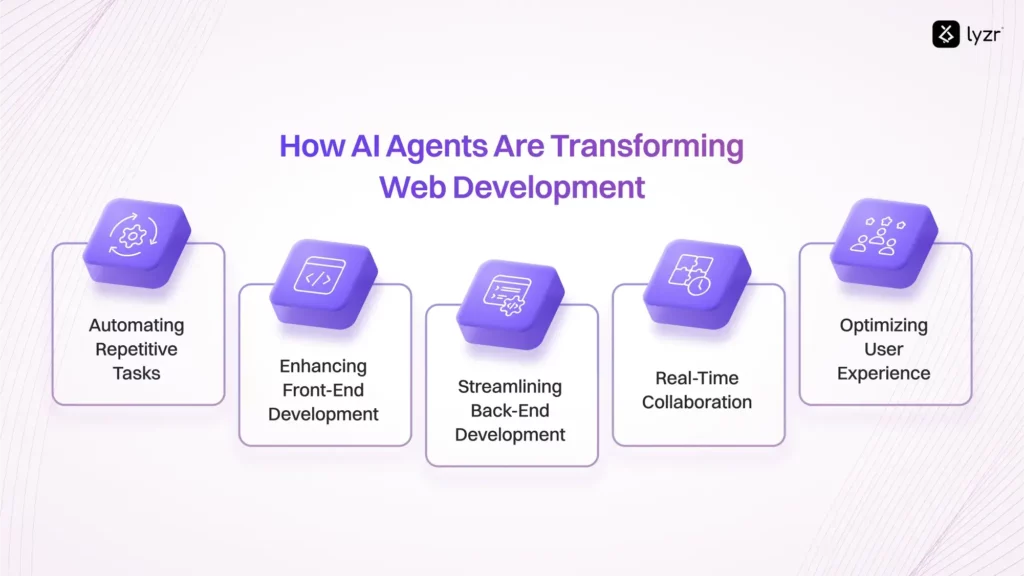
AI agents are transforming the entire web development workflow from start to finish. Here are five key ways they are making an impact.
- Automating Repetitive Tasks. AI agents excel at automating slow tasks like generating CSS or integrating APIs. This shift redefines what we consider “development.” Work that was once a core part of the job is now seen as a low-value task best left to an automated system, freeing developers for more important work.
- Enhancing Front-End Development. For the front-end, tools like AI-enhanced Figma plugins turn static designs into functional components.At the same time, a website builder helps carry these components into real layouts while preserving the original design intent.This closes the gap between creative intent and technical execution, allowing for a more fluid and accurate design process. To further streamline this process, platforms like Design.com AI Website Generator enable teams to transform design concepts into fully structured, responsive websites within minutes.
- Streamlining Back-End Development. On the back-end, AI tools assist with database setup and API creation. This allows developers to think in terms of data flow and logic, rather than getting bogged down in the mechanics of database syntax or server-side protocols a workflow commonly seen within a backend development company.
- Improving Team Collaboration. By integrating with platforms like GitHub through built-in tools like GitHub Integration, AI agents improve how teams work together.
- Optimizing the User Experience. AI can analyze user behavior to recommend website improvements. This moves UX design from a practice based on assumptions to one guided by real-time, data-driven evidence, creating more engaging interfaces and high converting websites
See how you can build 3 AI Agents in just 13 Minutes
Challenges and What to Consider
These points are not just obstacles to overcome. They are signals that our relationship with technology is evolving. Learning to trust and verify AI-generated code is not a temporary problem; it is a permanent new skill. Concerns over data ownership require us to establish clearer boundaries. Your ability to navigate these challenges will determine how effectively you can leverage these powerful systems. Adopting agile nearshore development practices can help teams address these challenges efficiently, combining the benefits of close collaboration, iterative workflows, and regional proximity to enhance both speed and quality in AI-driven projects.
While AI agents for web development are powerful, it’s important to be aware of some challenges.
- Getting Started. Getting Started. There can be a learning curve when adding new AI tools to your workflow. Some advanced tools also come with a subscription cost (you can check out examples like Lyzr Pricing), which can be a factor for small teams.
- Data, Privacy, and Ownership. Using cloud-based AI often means sending code to external servers, which raises security questions. It’s also important to be clear on who owns the intellectual property of any AI-generated code.
- Trust and Code Quality. Relying too much on AI can sometimes limit a developer’s creativity. AI-generated code can also have bugs, and learning how to debug it effectively is a new skill.
- Bias and the Future of Jobs. Bias and the Future of Jobs. AI models can reflect biases from their training data. This makes it crucial to practice Responsible AI and ensure fair outcomes. There is also the ongoing conversation about how AI will change job roles, likely shifting focus from repetitive tasks to more strategic work. At the same time, it can assist with website maintenance by keeping everything updated and running smoothly.
The Future of AI Agents in Web Development
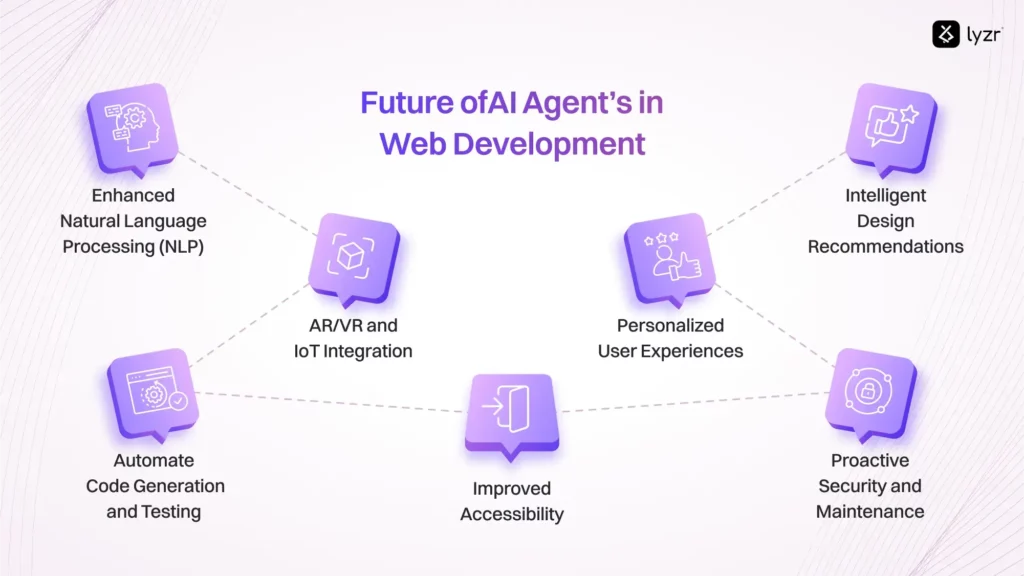
Technology is moving fast, and AI agents will become even more important for building websites. These trends are not about making development faster. They are about making it more intentional. The goal is to create a workflow where a human can express a desired outcome in plain language, and an intelligent agent can translate that vision into a secure, functional, and beautiful digital product. The technology disappears, leaving only your intent and the final result. Working with an AI mobile app agency allows businesses to apply this approach to mobile experiences as well—turning ideas into intelligent, user-centric apps without unnecessary complexity. In this model, the technology fades into the background, leaving only your intent and the final result.
Here are a few key trends to watch, including the rise of multi-agent systems that require sophisticated Agent Orchestration.
Multi-Agent Architectures. New systems like AgentMesh will allow multiple specialized agents to collaborate on complex tasks, mirroring a human development team.
- Better Communication. Future agents will have a deeper understanding of natural language. This will allow developers and even non-technical users to create and manage websites using simple, everyday words.
- Personalized Experiences. AI will use real-time data to create hyper-personalized websites. Content and layouts will automatically adapt to each user, which will increase engagement and conversions. Agencies often pair this with a white label website builder to quickly deliver ready-made sites to clients without starting from scratch.
- AR/VR and IoT Integration. As new technologies like AR, VR, and the Internet of Things grow, AI agents will be key to integrating them into web applications, creating more immersive experiences.
- Smarter Design Help. Agents will be able to analyze design trends and user data to provide intelligent recommendations, helping create sites that are both beautiful and easy to use. As a result, businesses may increasingly rely on WordPress development services to turn these data driven insights into practical website improvements.
- Proactive Security. AI will monitor websites for security threats and potential issues, proactively fixing problems before they can cause downtime or data breaches.
Wrapping Up
AI agents for web development are reshaping how developers work. From automating tedious tasks to improving code quality, these tools are now essential for staying competitive. Whether you are building a personal project or a large-scale application, using AI-powered tools can significantly improve your efficiency and the quality of your output.
Your role is no longer just to write code, but to lead systems that do.
Do you want to Build AI Agents for software development? Get started with the Lyzr Agent Studio.
Compare how Lyzr is reviewed across G2 and other trusted software marketplaces.
Book A Demo: Click Here
Join our Slack: Click Here
Link to our GitHub: Click Here

